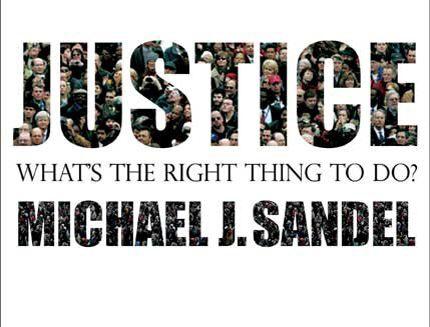Lots of books to catch up on. Here’s some of what I’ve been reading in the last couple months.
Matthew Barrett, None Greater: The Undomesticated Attributes of God (Baker Books, 2019). Barrett continues to crank out excellent theological material. This latest offering provides a classic exposition of simplicity, immutability, and the rest of God’s attributes.
Herman Bavinck, The Sacrifice of Praise (Hendrickson, 2019). This “new” book—translated and edited by Cameron Clausing and Gregory Parker Jr., with a foreword by Scott Swain—is full of biblical wisdom and deep spirituality. These penetrating reflections on baptism, communion, and confession will help parents, children, educators, pastors, students, new Christians, and seasoned saints alike.
Alistair Begg, Pray Big: Learn to Pray Like an Apostle (Good Book Company, 2019). Prayer is so important, and so difficult, that we always need more good books on prayer. Alistair writes with a biblical simplicity and pastoral sincerity that will help you not just feel like you should pray, but feel that you can.
Robert A. Caro, Working: Researching, Interviewing, Writing (Alfred A. Knopf, 2019). Fascinating from start to finish. I confess I have not read all (or most) of Caro’s famous work on LBJ, but I have read enough to know that as a researcher and political biographer, he has no equal. This little book is a snapshot into the subjects of his big biographies—Robert Moses and Lyndon Johnson—as well as a glimpse into the method behind Caro’s own madness.
Marc Cortez, Theological Anthropology: A Guide for the Perplexed (T&T Clark, 2010). Here you’ll find complex ideas clearly organized and articulately communicated. I can’t say I agreed with all of Cortez’s arguments; in general, I agreed with less as he moved through the book. Calvinists in particular will land in a different place on the freedom of the will. But all in all, a good introduction to a growing and important field.
J. V. Fesko, Reforming Apologetics: Retrieving the Classic Reformed Approach to Defending the Faith (Baker Academic, 2019). Within the Reformed community, I predict this will be one of the most important theological works of the last several years. Fesko does not seek to refute presuppositional apologetics so much as he makes the convincing case that Van Til’s approach to defending the faith is not adequate by itself. The main point: “There is a general distrust of natural theology. I hope to present evidence that would make people reconsider their aversion to its use in theology and apologetics” (xii). Fesko argues that the book of nature sits on the shelf unused, when Reformed theologians and practitioners should not be afraid to use it.
Adam Gopnik, A Thousand Small Sanities: The Moral Adventure in Liberalism (Basic Books, 2019). I was hoping for a historical account of the development of the classic liberal tradition in politics. While Gopnik does some of that, his account of the liberal tradition looks largely like a defense of contemporary liberalism. He does critique both the left and the right, but the right means conservative Christians while the left means Marxism. Middle ground? The sensibilities of people who read The New Yorker.
Kevin Harney, Organic Outreach for Ordinary People: Sharing Good News Naturally (Zondervan, 2009). Books on evangelism are like books on prayer: We always need more of them because most of us are so bad at both. In this book from 10 years ago, Harney tries to make evangelism more natural and less intimidating.
Paul Helm, Human Natures from Calvin to Edwards (Reformation Heritage Books, 2018). A dense book about a dense subject, but still an impressive survey for professors, pastors, or advanced students who want to mine the Reformed tradition as it relates to human nature, faculty psychology, morality and agency.
Michael Hyatt, Free to Focus: A Total Productivity System to Achieve More by Doing Less (Baker Books, 2019). Like I’ve said before, I am constantly reading books on priorities and productivity, not because I’m an expert but because my life demands that I say no to lots of things. Of course, the title oversells. This will not change your life in five easy steps, but Hyatt has a lot of good ideas worth implementing. The gist: You aren’t focusing on what you’re good at, and you should be.
John F. Kilner, Dignity and Destiny: Humanity in the Image of God (Eerdmans, 2015). A work on the doctrine of the imago dei that manages to be up to date without being novel. Kilner argues that the image of God is about God’s intention for humanity. The imago dei has to do with our connection with God through covenant and our reflection of God as the crowning glory of his creation. In many ways, then, the imago dei is a placeholder, a “hermeneutical lens” through which we can understand history and make sense of where we are headed and what we are supposed to be (39-40).
Timothy Larsen and Michael Ledger-Lomas (eds), The Oxford History of Protestant Dissenting Traditions, Volume III: The Nineteenth Century (OUP, 2017). This is a terrific (and expensive!) series. The book is attractively designed and brings together an impressive array of scholars writing about the Protestant non-Anglican traditions that emerged in the British Empire.
Robert Tracy McKenzie, A Little Book for New Historians: Why and How to Study History (IVP Academic, 2019). A short book that delivers much more wisdom than its size suggests. Whether you are a trained historian, an interested student, or merely a fan of history, you will find this book illuminating. Two major takeaways: Doing history is an exercise in loving our neighbors, and history is always complicated.
Noah Rothman, Unjust: Social Justice and the Unmaking of America (Regnery Gateway, 2019). As a writer for the conservative Jewish periodical Commentary, one would expect Rothman to be critical of social justice warriors, which he is. But this is not a right-wing hit piece. It’s more like an extended essay chronicling the ways in which some advocates of social justice end up undermining basic tenets of civility and the classic Western liberal tradition. His examples are real and often alarming. On the other hand, critics will surely point out that Rothman has not highlighted the positive contributions of those who are concerned with social justice.



